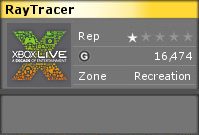Buried deep in the docs for v3 of the Visual Studio SDK is something called the Managed Babel System. Babel – in the context of Visual Studio – is the framework for creating language services for stuff like syntax highlighting, brace matching, and IntelliSense completion. As part of the Managed version of Babel, the VS SDK includes the Managed Package Lex Scanner Generator (MPLEX) and the Managed Package Parser Generator (MPPG). Online docs are pretty thin, but there are a few white papers in the additional documentation of the VS SDK install.
Interestingly enough, the white papers were written by John Gough of QUT’s Programming Languages and Systems group. John wrote Compiling for the .NET Common Language Runtime and PLAS has several interesting language projects including Metaphor and Ruby.NET. As you might expect for a group that focuses on languages on .NET, they have a managed version of YACC called GPPG available and John said at Lang.NET that they would be releasing a managed version of LEX “soon”. I’m thinking that QUT’s GPPG/GPLEX combo has been absorbed into the VS SDK and renamed MPPG/MPLEX. Unfortunately, my laptop power connector is broken, so I can’t verify this until Monday.
It’s not a Rosetta stone and the lex/yacc model is getting pretty long in the tooth, but I’m thinking at least Larry O’Brien will be interested in these tools.
Update: Apparently, this is somewhat old news, as per Aaron Marten:
The tools we’re including are called MPPG & MPLex (which stand for Managed Package Parser Generator and Managed Package Lexer). They are derivative works from the open-source GPPG/GPLex tools developed at the Queensland University of Technology.
[Managed Language Tools in Visual Studio 2005 SDK]

